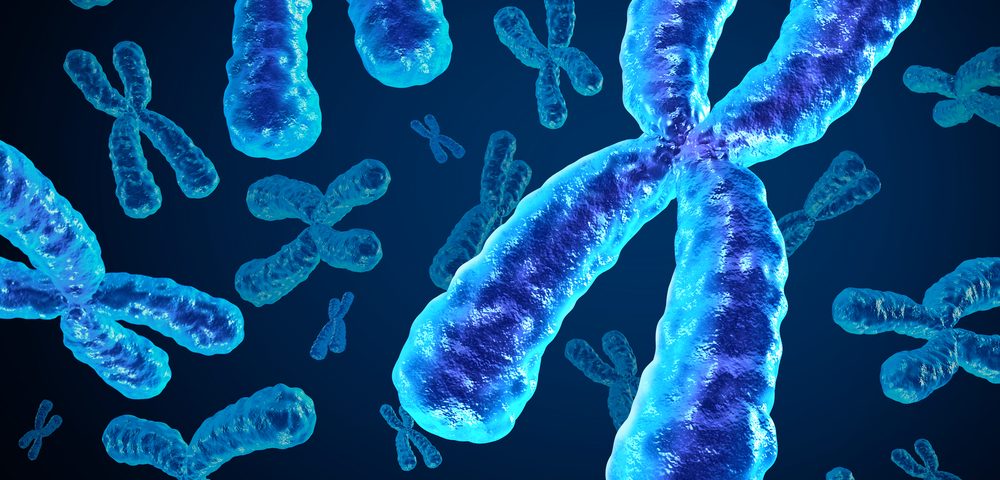Mutations in a newly identified gene that may increase women’s risk of ovarian cancer could be passed down through the X chromosome, a new study shows.
The findings suggest that ovarian cancer mutations may be inherited from the father, which could explain why sisters of ovarian cancer patients are more likely to develop the disease than their mothers.
The research, “Paternal lineage early onset hereditary ovarian cancers: A Familial Ovarian Cancer Registry study,” appeared in the journal PLOS Genetics.
One of the strongest predictors of ovarian cancer risk is a history of ovarian cancer among close relatives. This is a reason women are recommended for genetic testing.
Researchers previously had not understood why affected women’s sisters are at a higher risk than their mothers. But scientists at the Roswell Park Comprehensive Cancer Center in Buffalo, New York, believed this could be explained if a gene located in the father’s X chromosome could contribute to the daughters’ risk of ovarian cancer. Women receive two X chromosomes — one from the mother and one from the father.
To test their hypothesis, researchers used Roswell Park’s Familial Ovarian Cancer Registry and collected information on pairs of granddaughters and grandmothers. They conducted a genomic analysis of the X chromosomes of 186 women with ovarian cancer from the registry.
The results showed that ovarian cancer linked to genes inherited from the paternal grandmother manifested at an earlier age compared to women inheriting these genes via the maternal X chromosome. This also led to higher rates of prostate cancer in fathers and sons, reinforcing the X chromosome hypothesis.
“Our study may explain why we find families with multiple affected daughters: because a dad’s chromosomes determine the sex of his children, all of his daughters have to carry the same X-chromosome genes,” Kevin H. Eng, an assistant professor of oncology in Roswell Park’s Department of Biostatistics and Bioinformatics, said in a press release.
Analysis of BRCA-negative cases also revealed a new mutation of the X chromosome that may be linked to ovarian cancer cases happening more than six years earlier than average.
The findings support the existence of an ovarian cancer susceptibility gene, called MAGEC3, in the X chromosome that increases a woman’s risk of developing the disease, regardless of other cancer-associated genes, such as the BRCA genes.
While additional research is needed to validate these initial findings, the results suggest that cases of ovarian cancer considered sporadic may actually have an inherent pattern in which the risk gene is inherited from the father. If confirmed, this would mean that patients could be screened for the gene variant to assess cancer risk.
“What we have to do next is make sure we have the right gene by sequencing more families. This finding has sparked a lot of discussion within our group about how to find these X-linked families. It’s an all-or-none kind of pattern: A family with three daughters who all have ovarian cancer is more likely to be driven by inherited X mutations than by BRCA mutations,” Eng said.

